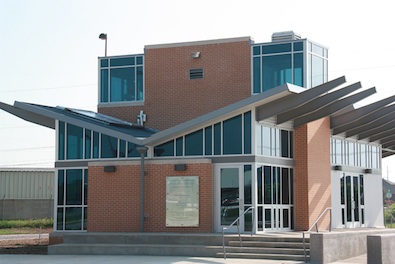University of North Texas Zero Energy Research Lab Unveiled
 DENTON, Texas — The Zero Energy Research Laboratory at the University of North Texas will give students and researchers the tools to study new and emerging sustainable and renewable energy technologies.
DENTON, Texas — The Zero Energy Research Laboratory at the University of North Texas will give students and researchers the tools to study new and emerging sustainable and renewable energy technologies.
The lab is the only one of its kind in Texas — designed specifically to test various energy technologies and systems in order to achieve a net-zero consumption of energy. Net-zero consumption can be solar, geothermal and wind systems, or a combination of systems, which produce enough energy to power a building and, in some instances, create excess energy to return to the power grid.
“UNT is developing a multi-faceted research program in renewable energy, energy conservation, and sustainability,” said Dr. Vish Prasad, vice president for research and economic development. “Our LEED-platinum certified Apogee Stadium, which receives power from three wind turbines, and the first net-zero energy house in Texas further add to UNT’s goal of being a leader in sustainability.”
Jacobs Engineering Group Inc. is the architect of record for the facility and Nouveau Construction served as the general contractor. Construction on the facility began in July 2011. A ribbon cutting ceremony was scheduled on April 20 to recognize the completion of the new facility.
The 1,200-square-foot structure includes many energy technologies including a geothermal heat pump, a radiant heated floor slab, solar panels, a building energy monitoring and control system, and a rainwater collection system.
The doors, windows, roof and supporting energy-efficient equipment are designed to be easily expanded and exchanged so that researchers can analyze new building materials.
“There are very few places for students to get hands-on experience working with the green technologies that will power our future. The Zero Energy Research Laboratory is now one of those locations,” said Dr. Yong Tao, chair of the department of mechanical and Energy engineering at UNT.
This project is funded at $1.15 million from a combination of higher education assistance funds, operating funds and gifts-in-kind. Donations were provided by Schneider Electric, NuconSteel, Axium Solar, H2Options/BlueScope Water, Benchmark Precision Buildings and Acme Brick.
